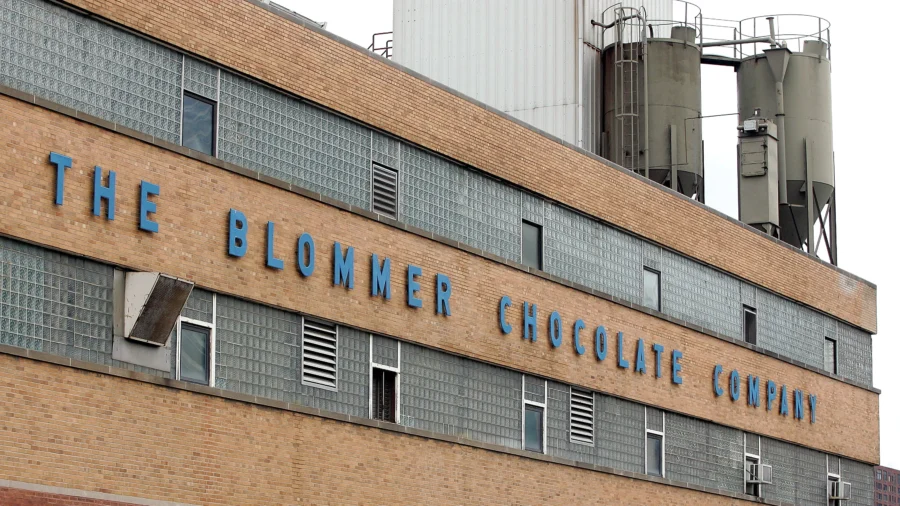One of Chicago’s iconic landmarks has announced it will be closing its doors. The announcement by the Blommer Chocolate Company, located in downtown Chicago’s Fulton River District came on March 22, in what the company called a challenging albeit inevitable decision.
Although its operations at other locations will be continuing, Blommer cited high operating costs as well as production reliability issues as a reason for its closure of the 85-year-old factory.
The company was founded in 1939 by brothers Henry, Al, and Bernard Blommer and now handles almost half of all cocoa beans processed in the United States. The company’s founding year also saw the construction of the factory, which is well known for occasionally creating an enticing scent of chocolate to cover Chicago’s downtown area.
According to a prepared statement by the company, the decision to close the factory serves as a benchmark in its operations, which embraces “progress, transformation, and elevation.”
“Now it is time for us to evolve ourselves to the next stage,” Blommer CEO Tomoki Matsumoto said in the statement. “We are committed to fortifying relationships with our customers and offering sustainable tailored to their unique business needs.”
Blommer said it now plans to reinvest $100 million into its three remaining chocolate factories and cocoa-processing plants in North America, of which two are located in Pennsylvania and California.
The company will be distributing $40 million across both locations for further automation, in addition to another $60 million, which will facilitate the creation of its processing plant in Ontario, Canada. The facility is to be one of the largest confectionery coating manufacturing facilities in North America, the statement reads.
So far, the company has not given any indication on how many people will be affected by the closure, nor what compensation measures are in place for employees who will be laid off as a result of the closure.
Despite closure of its factory, the company said that its headquarters will remain in Chicago’s Merchandise Mart commercial center, which will also house a new research & development center that the company is launching to “support future development, concept testing, processing, and ingredient research.”
Blommer was purchased by Japanese food processing company Fuji Oil Holdings in 2018, in a move which raised questions over the decades-old company’s future. Since its acquisition, the company has struggled to keep itself above water, with profits dropping from close to £120 million in 2021 to just over $70 million in 2023.
The company says that in addition to this, it employs nearly 1,000 people.
Blommer is one of the founders of the Washington D.C.-based World Cocoa Foundation, a non-profit organization first launched in 2000.
Foundation members declare a commitment to sustainability, combating child labor, and paying cocoa farmers a fair income, in addition to reversing deforestation. Accounts of the Foundation’s ethical practices, however, have previously come into question.
The World Cocoa Foundation, alongside many of its members, including Mondelez International, Nestle, and Mars, have come under scrutiny following accusations of profiting from child labor practices in the chocolate industry, a practice that continues to this day.
More than 1.5 million children are estimated to be working on cocoa farms in Côte d’Ivoire and Ghana, according to a report from the U.S. Bureau of International Labor Affairs in 2020.
The two countries alone produce more than half of the world’s cocoa.
Blommer was ranked among the worst-performing in farm traceability, after it emerged that the company could only trace around 40 percent of its 2021 cocoa supply to where it was farmed, according to an investigation conducted by cocoa industry watchdog group VOICE.


